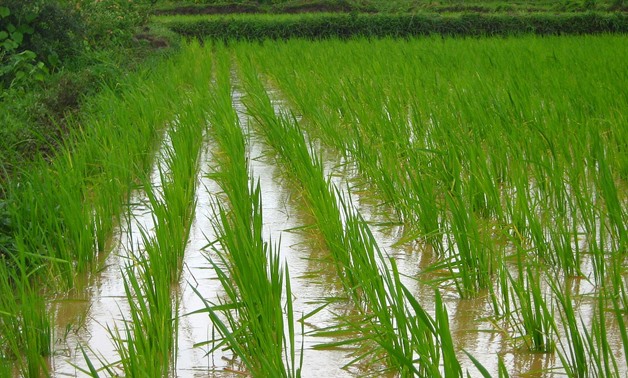
Caption: Rice cultivating- CC via Max Pixel
CAIRO - 21 May 2018: President Abdel Fatah al-Sisi ratified on Monday the newly-passed amendments to the Agriculture Law No. 53 of 1966, per which the government will determine the areas to cultivate certain water-intensive crops such as rice and sugarcane, amid the water shortage crisis that Egypt suffers from.
On April 23, the House of Representatives approved the amendments. Article 1 of the Agriculture Law stipulates that the minister of agriculture, in coordination with the minister of irrigation, shall issue a ministerial decree to ban the cultivation of some crops in certain areas that have low amounts of water, in order to rationalize water usage.
Also, Article 101 of the law stipulates that those who violate the ministerial decrees issued to implement Articles 1, 2, 3, and 4 of the Agriculture Law shall be punished with a fine not less than LE 20,000, and not more than LE 50,000.
On May 2, the Egyptian government agreed to increase the area allocated for rice cultivation by 100,000 feddans (one feddan equals 1.038 acres) for this season only, bringing the total area allocated for rice cultivation to 820,000 feddans, Abdel Latif Khaled, head of irrigation sector in the Ministry of Irrigation and Water Resources stated.
Egypt needs at least 105 billion cubic meters of water annually to cover the needs of more than 90 million citizens. However, it currently has only 60 billion cubic meters, of which 55.5 billion cubic meters come from the Nile and less than 5 billion cubic meters come from non-renewable subterranean water in the desert. The remaining 80 billion cubic meters are covered by the reuse of wastewater. The average per capita consumption of fresh water declined by 1.5 percent in 2015/2016 as it reached 103.4 cubic meters, compared to 105 cubic meters in 2015/2014, according to the Central Agency for Public Mobilization and Statistics (CAPMAS) data.
A further decrease in Egypt's water resources is expected amid the construction of the Grand Ethiopian Renaissance Dam (GERD), which could have a negative impact on Egypt’s Nile water share.
However, Egypt’s Minister of Water Resources and Irrigation Mohamed Abdel Aati stressed that there is no relation between the government’s new decision and its difference with Ethiopia over the construction of the dam.
Additional reporting by Marina Gamil

Comments
Leave a Comment